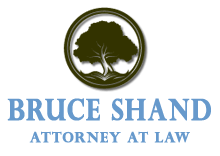Utah Medicaid – It Gives … And Now Takes Back
Add this to the scary but improbable things people are hearing could happen because of the new federal health-care law: After you die, the state could come after your house. The concern arises from a long-standing but little-known aspect of Medicaid, the state-federal program that provides health coverage to millions of low-income Americans. In certain cases, a state can recoup its medical costs by putting a claim on a deceased person’s assets.
Medicaid is an important social safety net for those who truly need it. Nevertheless, it is not without its drawbacks and should be understood before using it. For example, “Medicaid Asset Recovery” is one drawback many are just now discovering as the program is expanding under Obamacare.
So, what is “Medicaid Asset Recovery”? In layman’s terms: after you pass away the government can recoup the benefits you received from Medicaid by taking from your remaining assets, which usually means your house.
The Washington Post recently touched upon the new anxiety about the Medicaid Estate Recovery program in an article titled “Little-known aspect of Medicaid now causing people to avoid coverage.” Bottom line: Medicaid Asset Recovery is an important reality for families to understand.
Now, asset recovery has been a part of the Utah Medicaid program since 1985. It has been the means by which the government recoups costs for expensive Medicaid coverage for long-term care, at least when there was no surviving spouse or minor, blind or disabled child involved. However, the law has expanded so states can recoup losses for any Medicaid benefits provided after age 55.
Since it is “Medicaid” (a shared Federal-State program), states vary in their use and tolerance of the asset recovery procedure. Utah Office of Recovery Services successfully recovered almost $17 million of its $2.1 billion dollar Medicaid expenditures through spend down and other collections (such as lien foreclosure) efforts to recover Medicaid costs in 2013. Nevertheless, as a family member caring for an elderly loved one it does present a potential dilemma between receiving Medicaid benefits and keeping the house. If the house is actually a “home” with sentimental value to the family, or even if it is a valuable property worth bequeathing, then there are many factors to consider and maybe even more alternatives to explore.
In the end, however, the care of an elderly loved one is never less important than their house or some of their other assets. On the other hand, this is a prime example of when your family should consult with an elder law attorney sooner to plan for the best financial and legal solution for your family later on.
Reference: The Washington Post (January 23, 2014) “Little-known aspect of Medicaid now causing people to avoid coverage”










Leave a Reply
Want to join the discussion?Feel free to contribute!